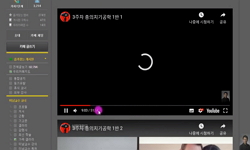Over the past three years, the hospitality industry has been hit hard and faced difficulties due to the COVID-19 pandemic where, economic and social activities around the world halted, causing unprecedented problems in society. Owing to concerns ab...
http://chineseinput.net/에서 pinyin(병음)방식으로 중국어를 변환할 수 있습니다.
변환된 중국어를 복사하여 사용하시면 됩니다.
- 中文 을 입력하시려면 zhongwen을 입력하시고 space를누르시면됩니다.
- 北京 을 입력하시려면 beijing을 입력하시고 space를 누르시면 됩니다.
호텔 레스토랑의 마케팅 믹스가 자아일치성, 만족 그리고 충성도에 미치는 영향 = Impacts of Hotel Restaurant Marketing Mix on Self-Congruity, Satisfaction and Loyalty
한글로보기https://www.riss.kr/link?id=T16913203
- 저자
-
발행사항
서울 : 세종대학교 산업대학원, 2024
-
학위논문사항
학위논문(석사) -- 세종대학교 산업대학원 , 호텔관광외식경영학과 , 2024. 2
-
발행연도
2024
-
작성언어
한국어
- 주제어
-
DDC
647.95068 판사항(22)
-
발행국(도시)
서울
-
형태사항
102p. : 삽도 ; 26cm
-
일반주기명
세종대학교 논문은 저작권에 의해 보호받습니다.
Impacts of Hotel Restaurant Marketing Mix on Self-Congruity, Satisfaction and Loyalty
지도교수:양재장
참고문헌: p.68~93 -
UCI식별코드
I804:11042-200000734979
- 소장기관
-
0
상세조회 -
0
다운로드
부가정보
다국어 초록 (Multilingual Abstract)
Over the past three years, the hospitality industry has been hit hard and faced difficulties due to the COVID-19 pandemic where, economic and social activities around the world halted, causing unprecedented problems in society.
Owing to concerns about COVID-19 infections, customers have become reluctant to conduct face-to-face transactions and eat in-store, which has had a significant impact on domestic hotels, restaurants, and industrial development. However, as the reopening of businesses began in earnest, external activities such as domestic travel increased. In addition, as domestic tourism demand among foreign travelers increases rapidly due to the Korean Wave, it is expected that K-Food, which incorporates K-content, will emerge as a growing trend for restaurants.
Therefore, as the hotel industry begins to recover and the inbound market begins to gain momentum, it can be an important opportunity to prepare a marketing mix to achieve competitive advantages for hotel restaurants in the future.
For hotel restaurants, it is as important to prevent the loss of existing customers as it is to attract new customers in preparation for the post COVID-19 era. As part of these efforts, hotel restaurants need to pay attention to feedback on customers' experiences and their experiential marketing mix. This is because the marketing mix is an important element in strengthening the capabilities of hotel restaurants by creating a new paradigm.
In this study, focusing on the importance of this marketing mix, we aim to investigate the impact of hotel restaurant users on satisfaction through customer congruence and the impact of self-congruity and satisfaction on loyalty.
The results of this study will provide theoretical implications for hotel restaurants marketing mix on self-congruity, satisfaction, and loyalty, and will provide practical implications for hotel restaurants to design and implement efficient marketing strategies. For the purpose of the study, the theoretical background based on previous domestic and international studies, and measurement tools were presented to verify each hypothesis.
The questionnaire was prepared based on previous research at home and abroad, and was conducted for a total of two days from October 13 to October 14, 2023, targeting adults who used restaurants at five-star hotels in Seoul over the past three years. The survey was conducted on a panel of survey research organizations. A total of 7,796 copies were distributed, 365 copies were recovered, and 359 copies, excluding 6 copies from unfaithful respondents, were used in the final analysis.
After a comprehensive analysis, it was discerned that the marketing mix of the hotel restaurant revealed a noteworthy influence of factors such as price, location, promotion, staff, and process on self-congruity. Additionally, it was observed that both price and physical evidence emerged as significant determinants affecting overall satisfaction. The investigation unveiled that self-congruity significantly contributed to both satisfaction and loyalty, while satisfaction, in turn, demonstrated a significant influence on fostering customer loyalty.
The implications of this study are as follows:
First, hotel restaurants need to focus on marketing mix management.
Second, it is important for hotel restaurants to pay particular attention to customers' first experience and leave a good first impression when customers first use the hotel restaurant.
Next, it should be recognized that both the customer's experience and evaluation of the hotel restaurant are inevitably subjective in that customers recognize and evaluate the hotel restaurant based on their own personal experiences.
Finally, hotel restaurants should focus on providing positive emotional experiences in interactions with customers.
Keywords : hotel restaurant, marketing mix, self-congruity, Satisfaction, loyalty
국문 초록 (Abstract)
지난 3년간 COVID-19의 유행으로 전 세계의 경제, 사회 활동이 중단되 는 현대사회의 가장 유례없는 심각한 상황으로 인해 환대산업은 큰 타격을 입으며 어려움에 직면하게 되었다. COVID-19 감염...
지난 3년간 COVID-19의 유행으로 전 세계의 경제, 사회 활동이 중단되 는 현대사회의 가장 유례없는 심각한 상황으로 인해 환대산업은 큰 타격을 입으며 어려움에 직면하게 되었다.
COVID-19 감염 우려로 고객들은 대면 거래 및 매장 내 식사를 꺼리게 되었고 국내 호텔, 레스토랑, 산업발전에도 큰 영향을 미쳤다. 그러나 COVID-19 엔데믹에 따른 리오프닝이 본격화되면서 국내 여행 등 외부 활 동이 늘어났다. 또한 한류 열풍으로 외국인 여행객들의 국내 관광수요가 급증하면서 K-콘텐츠를 접목한 K-Food의 많은 관심이 레스토랑의 신흥 효자 아이템으로 떠오를 것으로 기대된다. 따라서, 호텔 산업이 회복세로 돌아서고 인바운드 시장에 활기가 돌기 시작하는 지금 향후 호텔 레스토랑 의 경쟁 우위 달성을 위하여 마케팅 믹스를 준비하는데 중요한 기회가 될 수 있다.
호텔 레스토랑은 위드 코로나 시대를 대비하여 신규 고객을 유치하는 것 만큼이나 기존 고객의 이탈을 예방하는 것이 중요하다. 이러한 노력의 일 환으로, 호텔 레스토랑은 고객의 이용 경험에 대한 피드백과 경험 마케팅 믹스에 주의를 기울일 필요가 있다. 마케팅 믹스는 호텔 레스토랑의 새로 운 패러다임을 만들어 역량을 강화시키는데 중요한 요소이기 때문이다. 본 연구에서는 이러한 마케팅 믹스의 중요성에 착안하여 호텔 레스토랑 이용객의 고객의 일치성을 통해 만족에 미치는 영향과 자아일치성과 만족 이 충성도에 미치는 영향을 알아보고자 한다.
본 연구의 결과는 호텔 레스토랑의 마케팅 믹스가 자아일치성과 만족이 충성도에 대한 이론적 시사점을 제시하고, 호텔 레스토랑이 효율적인 마케 팅 전략을 설계하고 수행할 수 있도록 실무적 시사점을 제공할 것이다.
연구 목적을 달성하기 위해 본 연구의 이론적 배경은 국내외 선행연구를 바탕으로 연구되었으며, 선행연구들에 근거하여 각 가설을 검증하기 위한 측정 도구가 제시되었다.
설문지는 국내외 선행연구를 바탕으로 작성되었으며, 최근 3년간 서울 5 성급 호텔 레스토랑을 이용한 성인을 대상으로 2023년 10월 13일부터 10월 14일까지 총 2일간 진행되었다. 설문조사 전문기관의 패널 고객을 대상으 로 조사되었으며, 전체 7,796부가 배포되고 365부가 회수되어 불성실한 응 답자 6부를 제외한 359부가 최종분석에 이용되었다.
분석 결과, 호텔 레스토랑 마케팅 믹스는 가격, 장소, 촉진, 직원, 프로세 스가 자아일치성에 유의한 영향을 미치는 것으로 나타났다. 또한, 가격과 물리적 증거가 만족에 유의한 영향을 미치는 것으로 나타났다. 자아일치성 은 만족과 충성도 모두에 유의한 영향을 미치는 것으로 나타났고, 만족은 충성도에 유의한 영향을 미치는 것으로 나타났다.
본 연구의 시사점은 다음과 같다.
첫째, 호텔 레스토랑은 마케팅 믹스 관리에 중점을 둘 필요가 있다.
둘째, 호텔 레스토랑은 고객의 첫 이용 경험에 특히 주의를 기울여 고객 이 호텔 레스토랑을 처음 이용했을 때 좋은 첫인상을 각인하는 것이 중요 하다.
셋째, 고객은 자신이 경험한 데이터에 기초하여 호텔 레스토랑을 인식하 고 평가한다는 점에서 호텔 레스토랑에 대한 고객의 경험과 평가 모두 주 관적일 수밖에 없다는 점을 인지해야 한다.
넷째, 호텔 레스토랑은 고객과의 관계에서 긍정적인 정서적 경험을 제공 하는데 중점을 두어야 한다.
주요어 : 호텔 레스토랑, 마케팅 믹스, 자아일치, 만족, 충성도
목차 (Table of Contents)
- 제 1 장 서 론 1
- 제 1 절 연구의 배경 ·1
- 제 2 절 연구의 목적 ·4
- 제 3 절 연구의 방법 및 범위 5
- 제 2 장 이론적 배경 8
- 제 1 장 서 론 1
- 제 1 절 연구의 배경 ·1
- 제 2 절 연구의 목적 ·4
- 제 3 절 연구의 방법 및 범위 5
- 제 2 장 이론적 배경 8
- 제 1 절 호텔 레스토랑 8
- 제 2 절 마케팅 믹스 11
- 1. 마케팅 믹스(7Ps)의 개념 ·11
- 2. 마케팅 믹스의 구성요소 13
- 3. 마케팅 믹스에 관한 선행연구 21
- 제 3 절 자아일치성 ·23
- 제 4 절 만족 ·26
- 제 5 절 충성도 ·29
- 제 3 장 연구 설계 ·32
- 제 1 절 연구모형 및 가설 ·32
- 1. 연구모형 ·32
- 2. 연구가설 ·32
- 제 2 절 조사설계 38
- 1. 표본설계 ·38
- 2. 조사도구의 개발 39
- 3. 분석방법 ·44
- 제 4 장 실증분석 46
- 제 1 절 표본의 일반적 특성 48
- 제 2 절 변수의 신뢰성 및 타당성 분석 ·48
- 1. 요인분석과 신뢰도 분석 48
- 2. 연구모형의 평가 52
- 제 3 절 연구가설 검증 ·54
- 제 5 장 결론 및 제언 ·58
- 제 1 절 연구의 요약 58
- 제 2 절 연구의 시사점 및 제언 62
- 제 3 절 연구의 한계점 및 향후 연구 방향 ·66
- 참고문헌 ·68
- 설문지 94
- ABSTRACT 100












